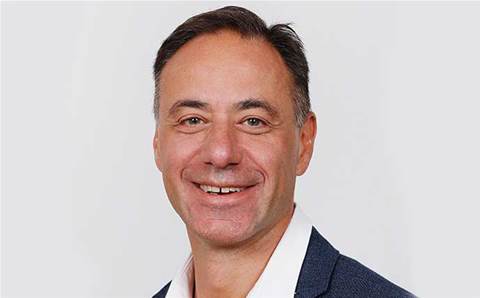Accenture is seeking to expand its technology practice and upend the traditional consulting formulas of integration giants, led by two new leaders for Australia and New Zealand.
Peter Vakkas was appointed from within in July to become managing director of Accenture ANZ technology, taking over from Jane Livesey who joined rival consulting giant PwC.
Reporting into Vakkas is Mark Engel, who was named Accenture’s Australian technology managing director last month. Engel joins from multinational IT services firm HCL, where he was the vice president and regional head of applications for Asia-Pacific. Engel also has a history with IBM that dates back to 1994.
The Australian Accenture technology practice constitutes about 50 percent of the Australian Accenture business, with a headcount of about 1800 staff across a number of offices in Australia, and about 4000 working on Australian client contracts across the business’ global delivery network.
Engel’s role is predominantly sales-driven, with a particular focus on the resources sector, including utilities and mining, said Vakkas. "He’s a great guy and we’re really excited to have him join the organisation."
Accenture's technology practice specialises in multiple technologies and architectures, including SAP, Oracle, Microsoft and Salesforce.com.
Vakkas told CRN he wanted to "embed a lot of the new modern engineering practices and innovation into everything we do with our clients across the region".
One initiative is the Accenture Liquid Studio, the first of which launched in Sydney last year, with the second opening in Accenture’s new Melbourne office in October.
Vakkas said Liquid Studio provided a space for communication and collaboration with Accenture and its clients around the latest technologies and prototypes in an environment where new initiatives could be explored between clients and Accenture’s full-stack engineers, before being scaled out by the technology business.
“It’s a big part of our technology business in terms of the way we want to bring innovation to everything we do with our clients. The Liquid Studio is a unique space that allows us to collaborate across all of our businesses at Accenture together with clients to engage in design thinking and co-create with our clients,” Vakkas said.
Accenture has built out its technology offering with a bevvy of acquisitions, including global SaaS juggernaut Cloud Sherpas in 2015 and Melbourne-based RedCore in 2016. Earlier this month, it snapped up US-headquartered IBB Consulting, which has an office in Sydney.
Vakkas intends to continue building out of the capabilities of the technology practice through M&A.
“In terms of capability, we have the fundamentals of a lot of capabilities that we need, but based on what our growth plans are for the coming years, we’re going to need help to firstly help grow that the capability… but also to grow our resources quickly enough, so ventures and acquisitions are still a very key part of our strategy and will be looking over the coming years to continue to acquire the right organisations."
Faster delivery, smaller projects
Accenture had already been moving toward a more agile delivery methodology under previous Accenture Technology Group ANZ, Jane Livesey, and Vakkas will continue to focus on delivering solutions to business faster, eschewing traditional long-term builds.
“We’re seeing is a lot of customers moving away from traditional builds and moving to do things smaller and buy in smaller pieces. They want to be more nimble and agile. Having said that, easily more than 50 percent of our business is already in that digital space, so we’re doing a lot of work in that area,” he said.
Clients are grappling with how to respond to rapid technology changes hitting their businesses and disrupting their industries, Vakkas added.
“There are many challenges they face. The two themes I see are the need to be more agile – to be able to bring new products and services to market faster than ever before – and reducing cost in their current operational environments to redirect back into the business to drive growth.”
Accenture will respond to these changes by focusing on cloud, modern engineering approaches, agile development practices, automation and robotics, analytics and AI, and improving customer experience.
“This is the most interesting and exciting and challenging time to be involved in technology and running a technology organisation. That’s why I was attracted to this role and I’m really excited about having it,” he said.
In June this year, Accenture's global chief executive said landing bigger cloud, digital and security projects had enabled the company to rotate half of its US$35 billion business to emerging technologies over four years.





_(21).jpg&h=142&w=230&c=1&s=1)

.png&h=142&w=230&c=1&s=1)
_(27).jpg&h=142&w=230&c=1&s=1)




.jpg&w=100&c=1&s=0)











